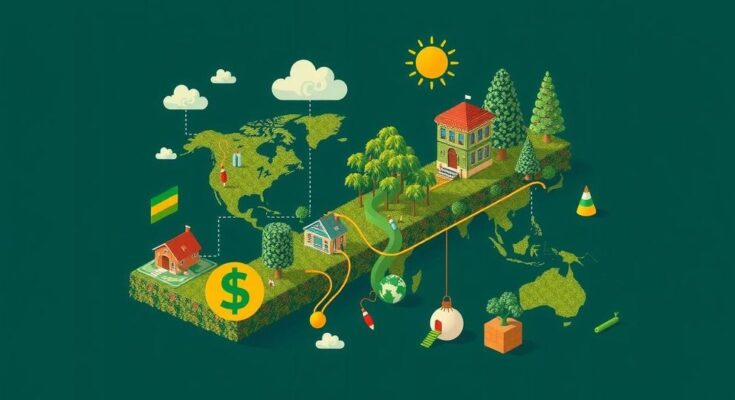Islamic finance offers a sustainable, ethical approach to tackling climate change, particularly for communities facing severe environmental challenges. By reallocating investments towards renewable energy and sustainable projects, Islamic financial institutions can mobilize billions to support vulnerable regions, fostering climate resilience and upholding social responsibilities. This integration of Islamic principles with climate action emphasizes the moral imperative of promoting environmental stewardship as a pathway to a more sustainable future.
Islamic finance is emerging as a pivotal instrument in the fight against climate change, particularly for Muslim communities adversely impacted by environmental crises. Rising sea levels, food insecurity, and devastating natural disasters underscore the urgent need for sustainable financial practices that align with ethical and social responsibilities. Islamic finance, rooted in principles such as zakat and waqf, promotes investment in community-enhancing projects and diverts funding from environmentally harmful sectors. Successfully leveraging Islamic finance can mobilize substantial resources for renewable energy, demonstrating its potential in addressing both the climate emergency and promoting socioeconomic stability. By reallocating just a fraction of its assets towards green initiatives, Islamic finance could significantly contribute to mitigating climate impacts and enhancing community resilience, affirming its fundamental role in promoting environmental stewardship within a faith-based context.
The ongoing climate crisis has deeply affected Muslim-majority regions, with communities experiencing severe weather events, including floods and droughts, exacerbating food insecurity and threatening cultural practices during critical periods such as Ramadan. Islamic finance provides an ethical approach to financial transactions, channeling resources towards sustainable initiatives that benefit community welfare rather than harm the environment. As a financial system built on moral responsibility and social accountability, Islamic finance can play a transformative role in achieving sustainable development goals and enhancing climate resilience, particularly in vulnerable regions.
In conclusion, Islamic finance is uniquely positioned to advance climate action through ethical investing and sustainable practices. By mobilizing significant capital towards renewable energy and climate resilience projects, Islamic financial institutions can not only address the immediate impacts of climate change on affected communities but also uphold the values of social responsibility and environmental stewardship inherent in Islamic teachings. This synergy between financial capability and ethical obligation underscores the imperative for enhanced investments in green initiatives as a path towards sustainability and equity.
Original Source: www.greenpeace.org




